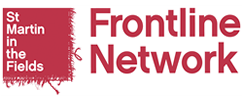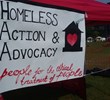
- Home
- News and Views
-
Your sessions are stagnating – it’s time ‘not’ to panic!
Your sessions are stagnating – it’s time ‘not’ to panic!
Your sessions are stagnating – it’s time ‘not’ to panic!
Sarah Hughes, National PTS Manager at Mayday Trust, talks to the Frontline Network about what happens if your sessions stagnate:
When working in a person-centred, flexible and strength-based way, there is not a box to tick or form to complete to keep your sessions ‘on track’. This way of working is focused on responding to the individual and the lack of structure can, at times, be daunting to workers. In a recent Personal Transitions Service (PTS) Frontline Network meeting, some of the coaches delivering the PTS explored what happens when it feels like the work you are doing is stagnating and not going anywhere. Below are some key reflections from this discussion.
It might be you, not the person you’re working with!
One of the key areas discussed was even if you as a practitioner feel that a relationship or meetings are stagnating, the individual may still be finding those meetings and the support useful. Often as practitioners we feel a need to be doing something tangible, something that we might be able to record or create an outcome. Often when working in a way that is led by the individual and goes at their pace, we may feel we are not doing a good job, or being useful or enough. However, it might be that the individual might be benefitting from having reflective conversations which are helping them to deal with certain things that are going on and by not ‘doing for’ individuals, it is having a positive impact.
The relationship is everything
It was also discussed that it might be that the relationship with the individual might not be established enough for that person to feel comfortable discussing certain things. One of the core elements of this approach is ensuring that a trusting, open and honest relationship is built (within reasonable professional boundaries) between you as the practitioner and the individual. It might be that if it feels like it is not going anywhere, the individual may not trust you enough to share information and therefore more time should be invested in building that relationship first.
Getting the right time
Another key piece of reflection is the understanding that everyone works at a different pace. Some people might have a clear idea of what they want to do, and others may not, your job is not to push someone on a timescale dictated by you. A key principle of the PTS is ‘right intervention, right time’-this has the explicit understanding that people do not fit into boxes or targets that we set and we need to respond to the person in front of us, when they are ready.
Keep it honest
Lastly, the PTS coaches reflected on how important it is to have open and honest conversations with the people we work with. It’s important to have conversations about how they think it is going and what they would like from the work you are doing with them. It’s always beneficial to discuss how an individual would prefer you to work with you as a practitioner, rather than assuming you have all the answers. Keeping it open and having real conversations about the work you are doing is an important thing to reflect on.
News and Views
-

Blog | Using The Training Fund to Understand The Impact Of The Renters Reform Bill
Alison is a Development Manager at The Bond Board, a charity that exists to reduce homelessness by getting people on...
-

New Fund | 'Incubating' Great Practice with Homeless Link
St Martin's Charity is supporting Homeless Link to deliver the new Homelessness Incubator Project, focusing on discov...
-

New Fund | Over £500,000 for mental health projects across UK
We are delighted to announce the award of three multi-year grants to projects working with people struggling with the...
-

Survey - Anti-Social Behaviour Powers and people experiencing homelessness
Frontline workers are invited to share their insights as part of a research study into the impact of anti-social beha...
-

Brain Injury Guidance
Leigh Andrews of Change Communication offered specialist advice on brain injuries and homelessness through a digital...
-

End Furniture Poverty Survey
End Furniture Poverty have recently spoken with the Frontline Network to discuss their important ongoing survey, seek...
-

Mental Health Support and hot food at The Soup Kitchen
Dr Brett Grellier discusses the launch of an innovative new project offering mental health support and hot food to in...
-

Youth Homeless North East annual Homeless survey
Youth Homeless North East is conducting its 8th annual Homeless Survey and asking that everyone related takes part.
-

Cover the Cost Campaign
Jasmine Basran, Senior Policy Officer at Crisis, talks to us about the Cover the Cost Campaign, asking the Government...
-
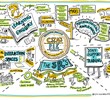
Developing a PIE Language at The Connection at St Martin’s in the Field
Rosie Allen-Jones, Client Involvement Coordinator at the Connection at St Martin's, talks to us about how the Connect...
-

The End of the Line – Migrant homelessness and what to do when there’s nothing left to do
Bethan Lant, Project Lead at Praxis, discusses support for those who are homeless and have exhausted their immigratio...
-

Delivering a European campaign to end street homelessness
Patrick Duce, Campaign Impact Manager at World Habitat, shares his learning from the European End Street Homelessness...
-

Access Denied: The cost of the 'no recourse to public funds' policy
Caz Hattam, Caseworker at the Unity Project, introduces their recent research into the 'no recourse to public funds'...
-

Survey to small charities and faith groups
Housing Justice and Homeless Link are working in partnership on a project reaching out and hearing directly from smal...
-

Rights & Entitlements for those with status under the EU Settlement Scheme
Praxis, the Frontline Network Partner facilitating the Pan-London Migrant Frontline Network, recently held an event l...
-

Exploring the new world: practical insights for funding, commissioning and managing in complexity
Dr Toby Lowe, Senior Lecturer in Public Management & Leadership at Newcastle Business School, introduces Exploring th...
-
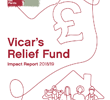
VRF Impact Report 2018/19
Over the past year we have given out 3827 grants totaling £1,156,805 through the VRF. Read the latest Impact Report t...
-

Influence from the Frontline
Frontline workers are crucial at giving insight into the viewpoints of the people they work with as well as the chall...
-
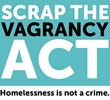
The Vagrancy Act
Crisis, along with others including Homeless Link, Cymorth Cymru, Centrepoint, St Mungo’s, Shelter Cymru and the Wall...
-

Save the date for the Annual Frontline Network Conference 2019
Our Annual Conference this year will take place on 20th June 2019 in London.
-

Influencing local decisions
Zoe, Frontline Network Coordinator at Coventry Citizens Advice, talks to us about the Coventry Frontline Network and...
-

The Litigant in Person Network
Martha de la Roche, Network Development Manager at Litigant in Person Network (LiP Network), tells us about The LiP N...
-

Help us tell the real story of homeless people's deaths
Maeve McClenaghan is an investigative journalist working on a year-long project trying to log when and how people are...
-

VRF Impact Report
Find out what impact VRF had last year and how to get involved in shaping its direction in the coming year.
-

Housing First Scotland
Please see here for the first issue of Housing First Connect - a twice-yearly newsletter for Scotland’s new Housing F...
-

Supporting Transitions with Fulfilling Lives
Fulfilling Lives Newcastle Gateshead (FLNG) provide an update on the funding they received through the ideas board.
-

Developing an Understanding of Brain Injury
Find out more about the range of resources that can help frontline staff where they suspect Acquired Brain Injury (AB...
-

Changing the system for people experiencing hidden homelessness
Ellie Radcliffe, Network Development Officer for Justlife, talks to us about creating the Unsupported Temporary Accom...
-
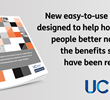
DWP release resources to help support homeless claimants with UC
Last week the DWP launched two guides to help homeless claimants with UC. One for people themselves and one for suppo...
-

New resources on Universal Credit launched for frontline workers
Homeless Link have recently launched three new briefings for frontline workers supporting people with making claims f...
-

Home Comfort: furnishing homes for vulnerable people in Huddersfield
In June 2017, Huddersfield Mission came to the Ideas Board with a simple idea: to provide basic home furnishing packs...
-

Access to healthcare for Migrants
Bethan Lant, Casework Manager at Praxis Community Projects, talks to us about access to healthcare for Migrants.
-

Engaging with decision makers in South Yorkshire
Sirea Jabar is the Partnership and Training Officer for Target Housing in South Yorkshire and is partner representati...
-

Highlights from a visit to Cyrenians
Joe Baldock, engagement worker at Justlife Brighton, talks about his visit to Cyrenians and engaging with the Scottis...
-
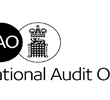
The National Audit Office comment on Universal Credit
Find out more from the NAO and their report on Universal Credit.
-

Brexit: Supporting Vulnerable Europeans
Lidia Estevez Picon, Migration Policy and Services Coordinator at the Connection at St Martin's, talks about how you...
-

CPAG - Early Warning System
Dan Norris, from CPAG, talks to us about a new Early Warning System to record the impact of benefit changes implement...
-

What about me? Recognising and supporting children with a mother in prison
Hear from Sarah Beresford, a Prison Reform Trust Associate and author of the What about me? report.
-

Calls from the Frontline to end homelessness in Scotland
Maggie Brunjes, Director of Glasgow Homelessness Network (GHN) provides an update on the work of the Scottish Governm...
-

An initiative to tackle health inequalities for people who are homeless
Dr Zahid Chauhan talks to us about setting up new initiative Homeless-Friendly.
-

Changing Lives Shadowing Mayday in Oxford
Adam Orr and Lyndsay Sholder from Changing Lives shadowed Mayday Trust in Oxford on 30/01/18 in order to learn and di...
-

Moving on from temporary accommodation
Ellie McLaren from Changing Lives writes about a recent Be the Change Frontline Network event which looked at moving...
-

Frontline Network Conference 2018: Wellbeing on the Frontline
Book now for our Frontline Network Conference 2018: Wellbeing on the Frontline, which will be held in Central London...
-

Vicar's Relief Fund (VRF) Arrears Survey
We want to hear from you if you support people with arrears that affect their housing situation - please complete our...
-

The Hostile Environment
Bethan Lant, a Project lead from Praxis, writes about the creation of a hostile environment for migrants and refugees.
-

Universal Credit: Effects on frontline services and clients
Sinead Kelleher from ARCH blogs about an event in Wrexham held to highlight the effects of the rollout of Universal C...
-

Be the Change Frontline Network explores Universal Credit
Peff Soulsby from Changing Lives writes about a recent Be the Change Frontline Network event which explored the thorn...
-

Vicar's Relief Fund (VRF) Grants Survey
We are seeking feedback on our VRF grants - please complete our short survey and tell us what you think.
-

Wrexham’s Crisis Cafe
Sinead Kelleher writes about Wrexham's Crisis Cafe, a multi-agency response to Universal Credit.
-

The Unspoken Truth About Frontline
Anna Suswillo, a former Asset Coach for Mayday, shares the unspoken truth about working on the frontline and her expe...
-

Homeless Link: Transatlantic Practice Exchange 2018
This is an exciting opportunity for frontline homelessness staff to spend a fortnight in the United States, exploring...
-

Frontline Worker Survey
We are asking frontline workers to participate in a survey, aimed at those working with clients who are experiencing...
-

Frontline Network Conference
Save the Date! The Frontline Network Conference will be held on Thursday 7 June 2018 in Central London.
-

Wellbeing on the Frontline Conference: Have your say!
We are planning our "Wellbeing on the Frontline" Conference for 2018 and we need your input to ensure the event is of...
-

Vicar's Relief Fund (VRF) Volunteers Wanted
The Vicar's Relief Fund (VRF) team are looking for VRF volunteers to support them with general office and administrat...
-

A Day in the Life of ... Hamoaze House
Jane Cookson, Path's Frontline Network Co-ordinator, spends a day with Plymouth's Hamoaze House, which provides help...
-

Reflections on Psychologically Informed Environments (PIE)
Harriet Morris, from Justlife Brighton, reflects on what she learnt from a recent Frontline Network event focusing on...
-
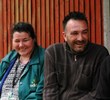
Personal Transitions Service (PTS): An asset based model
Mayday Trust's Paddy Bates writes on the Personal Transitions Service (PTS), the first strength based model for peopl...
-

Vicar's Relief Fund (VRF) partners with Glasspool
St Martin-in-the-Fields Charity is partnering with Glasspool Charity Trust, to launch a 1 month pilot to provide hous...
-

Top Tips for organising a successful local event
Target Housing's Sirea Jabar shares her top tips on organising a successful local event, based on her own experience...
-

The Value of Reflective Practice
Mike Wright from Cyrenians attended the Tackling Multiple Disadvantage: 2nd National Summit and shares some of his le...
-
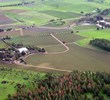
Rural rough sleeping is on the rise
Charlotte Snelling, Research Fellow at the IPPR, writes about the rise in rural rough sleeping
-

The Frontline Network is looking for new Steering Group members
The Frontline Network needs YOU! We are looking for 3 frontline workers to join our Steering Group
-

Introducing our new Frontline Network Partner Organisations
The Frontline Network introduces its 10 new Partner Organisations for 2017-2019.
-

Winston Churchill Memorial Trust Travelling Fellowships
The Winston Churchill Memorial Trust are offering funded Travelling Fellowships to individuals working in the housing...
-

A Year in the Life of the Frontline Network
David Barclay reflects back on his year spent working on, and developing, the Frontline Network.
-

Vicar's Relief Fund (VRF) ID pilot has been extended
We have extended the Vicar's Relief Fund (VRF) ID pilot
-

A map through conflict
A Cyrenians Mediator writes about their innovative Amber Mediation and Support Project, a model of mediation and supp...
-

The Frontline Network celebrates its first birthday and launches an Events Fund
The Frontline Network celebrates its first birthday and launches an Events Fund
-

“A place to call home"
Hannah Gousy was seconded from Crisis to the Centre for Social Justice (CSJ) to help design policy recommendations to...
-

“I’m not going to order a chest X-Ray based on his social situation”
Susan Rutherford is a medical student who set up a homeless shelter in Leamington Spa. She explains why homeless heal...
-

VRF launches 3 month pilot funding ID
We have set up a 3 month pilot through the Vicar's Relief Fund (VRF) of funding ID where someone is currently homeles...
-
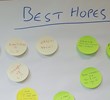
The Care Act and homeless/ vulnerably housed clients
We hear from Alex Smith, System Broker at Fulfilling Lives Newcastle Gateshead, about the latest frontline event disc...
-

The Frontline Network joins forces with Turn2us to provide tools on benefits and grants
The Frontline Network has launched an exciting new partnership with Turn2us to give frontline workers access to their...
-

Five questions on working with undocumented migrants
Bethan Lant, project lead for the advice team at Praxis Community Projects, answers five questions about working with...
-

Helping people who are homeless into GP practices
Jane Cook, Clinical Lead for Healthy London Partnership’s London Homeless Health Programme, tells us about the work b...
-
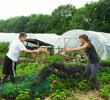
Indelible Stains? How one homelessness charity is turning criminal records from a problem into an asset
Cyrenians promote an approach where lived experience of struggles is valuable, both to those with whom they work and...
-

How the Pan-London Housing reciprocal prevents survivors of domestic abuse from becoming homeless
Safer London is centrally coordinating a new Pan London Housing Reciprocal which is a framework to help survivors to...
-

Five things to consider when working with homeless migrants
Chloe Robinson is an immigration advisor with Praxis Community Projects on the Routes Home project. She spoke to Prax...
-

A London Nightshelter
On 7 November we opened our church-based shelters for the winter with more churches signed on then ever before. Glass...
-

Barry tells how lived experience shapes his work
Barry is a recovering alcoholic and now works in frontline services as a Support Worker for national charity Changing...
-

'Step Up' at The Connection
Wyn Newman introduces the volunteer programme 'Step Up' that has been developed at The Connection for service users.
-

Scarborough - Client and Agency Meet Up
Trish Kinsella, from the Rainbow Centre in Scarborough, talks about getting clients and services together for breakfast.
-
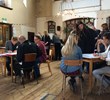
Brighton and Hove Frontline Network Up and Running!
Simon Gale, Operations Manager for Justlife Brighton, talks about the inaugural St Martin’s Frontline Network gatheri...
